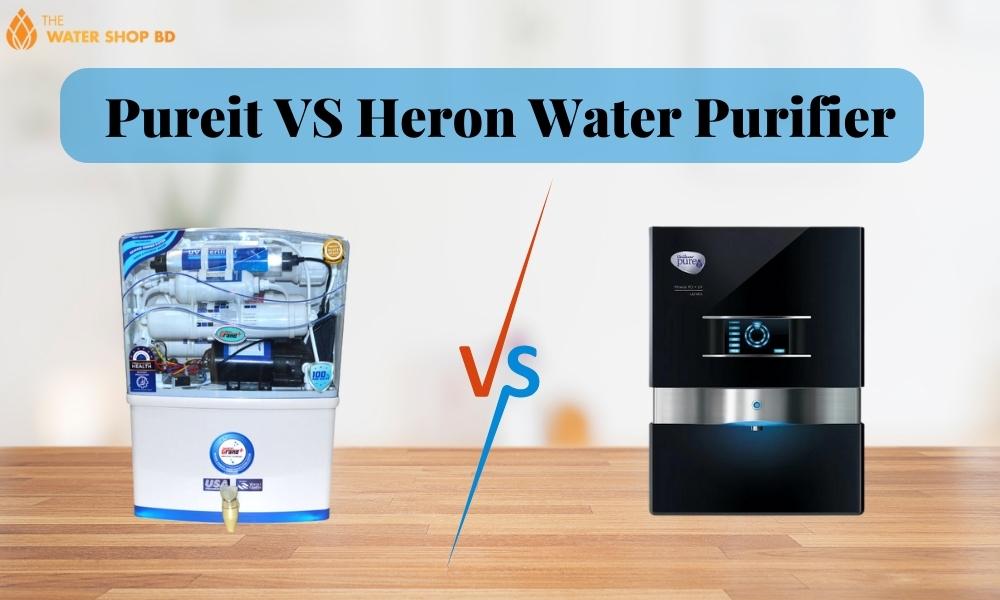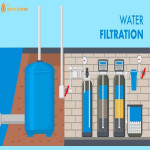Having access to pure drinking water is a necessity for a healthy life. After air, water is something that every one of us depends on. An average person can live only up to three days without water. However, many germs and bacteria make their homes in water and turn our elixir of life into poison.
What are the major Water Borne Diseases that people in Bangladesh may face?
You may want to ask what are the major water-borne diseases that people in Bangladesh may face. After all, you must know your enemy before you prepare to fight them. Some of the common water-borne diseases that Bangladesh people suffer from are diarrhea, cholera, dysentery, hepatitis, etc.
Common water-borne diseases in Bangladesh are discussed below to raise awareness-
Diarrhea: Diarrhea is the most common water-borne disease that is caused by a virus. Water contaminated by this virus can produce symptoms like frequent loose stool, abdominal pain, and fever. If diarrhea continues, it can cause dehydration and electrolyte imbalance. Oral saline is prescribed to the patients to replace the loss of fluids and essential salt.
Cholera: Cholera is caused by bacteria that can be found in the water. This disease causes intense diarrhea like bowel movement, vomiting, restlessness, etc. Severe cholera can be mortal. In the past, the outbreak of this disease has caused thousands of death. The patient should drink safe water frequently to prevent dehydration.
Dysentery: Several bacteria are responsible for causing dysentery. Bacteria such as Shigella, Campylobacter, E.coli, Salmonella, etc are all individually capable of causing dysentery. Common symptoms of dysentery are watery stool with mucus or blood, high fever, and vomiting. It is a kind of inflammation in the intestine that can have severe consequences if not treated properly.
Hepatitis: Hepatitis A and hepatitis E virus can be spread through contaminated water. Both of these diseases can cause outbreaks and prove mortal to hundreds of people. According to World Health Organization (WHO), hepatitis is the seventh leading cause of death worldwide. Hepatitis A symptoms include jaundice, fever, abdominal pain, etc.
Hepatitis E is especially risky for pregnant women. They run the risk of liver failure and may lose the child due to this disease. Commonly this disease causes symptoms such as fever, jaundice, dark urine, nausea, etc which are also common in patients with Hepatitis A. A doctor will be needed to run tests and detect the disease to treat it accordingly.
Water-borne diseases can be mortal if not treated accordingly. If the symptoms of any of these diseases continue, one must get himself checked by a doctor. Treatments may include taking medicines and following rules set by the doctor. Almost all of these diseases can be prevented by making sure that the water you are drinking is filtered out of contaminants.
Why are Bangladeshi people at high risk for water-borne diseases?

Bangladeshi people are at high risk for water-borne diseases because of the dense population and lack of awareness. Despite the efforts made by the government and NGOs, a significant part of the population is still not aware of the necessity of drinking pure water. They don't think drinking contaminated water is much of a big deal, and as a result, water-borne diseases remain prevalent.
Bangladesh is a country crisscrossed with rivers. While that is a blessing for our economy, it also creates a high probability of flooding during the rainy season. The flooding makes it almost impossible for people to have access to pure drinking water. As a result, water-borne diseases break out and many people die.
In Bangladesh, people are not yet adequately concerned about the environment. They indiscriminately pollute the water which creates a scarcity of pure drinking water. It also creates a good breeding ground for germs and bacteria. Since people are not aware of the harm that contaminated water can do, they drink this water and become infected by water-borne diseases.
People are not adequately informed about water quality and how to improve it. Filter chemicals, purifiers, water filters are some great options available to decrease the risk of water-borne diseases. However, most people do not consider that water can be filled with contaminants even if it appears and tastes normal. Lack of knowledge about how and when water-borne diseases spread and how to prevent them increases the risk of these diseases further.
How to decrease the risk of water-borne diseases?

To decrease the risk of water-borne diseases firstly we would need to make everyone aware of the dangers of drinking contaminated water. We'd need to have household water purifiers to ensure safe drinking water for our families. These purifiers can get rid of the germs and heavy metals present in the water. This way, chances of catching a water-borne disease can be much lowered.
Industries contribute a lot to contaminating the water. Many factories in our country directly release their waste into water bodies. This possesses a threat to the health of people and domestic animals who drink that water. It must be compulsory for every factory to be equipped with industrial water purifiers.
Purifiers, filters, filter chemicals can reverse the contamination present in the water. These are especially helpful for the populace in areas that have highly contaminated water. Filter chemicals can be used to provide safe water for the people who are affected by the flood. Water-borne disease outbreak is a problem that frequently occurs during flooding.
Water is a valuable resource that our country is blessed to have in abundance. However, due to our ignorance, we have already contaminated most of our water bodies. If we keep being careless and keep dumping our chemical and biological waste in rivers, canals, and ponds, soon we will have a major crisis of safe drinking water.
Bangladeshi people are still not concerned enough about the risks of contaminated water. As a result, water-borne disease outbreak occurs often. The government and private sectors should team up to educate people and provide solutions to eradicate this problem. We at The Water Shop BD also concern ourselves with providing the Bangladeshi crowd with adequate knowledge and solutions for safe drinking water.












